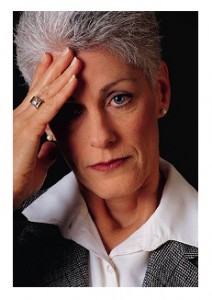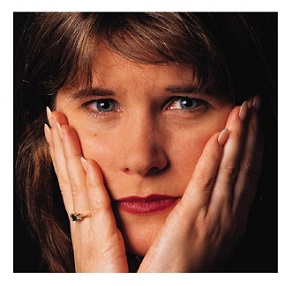 I’m late to this article on Huffington Post Women, addressing statistics on antidepressant use among women. According to data cited by reporter Katherine Bindley:
I’m late to this article on Huffington Post Women, addressing statistics on antidepressant use among women. According to data cited by reporter Katherine Bindley:
one in four women is dispensed medication for a mental health condition, compared to just 15 percent of men
While I find the content of this column worthy of discussion (do pop over and read), equally worthy is what is missing – any mention of the frequency with which women are prescribed medications they don’t need – in lieu of addressing the possibility of other causes for their complaints.
Psychiatrist Dr. David Muzina offers a variety of reasons for the growing use of prescription mood and anxiety medications for women.
These include:
- Women seek treatment more frequently than men
- Women are at higher risk for depressive disorders
- Women are bearing the “brunt” of emotional stressors (the juggle of kids and job in a tough economy)
Doctor, Doctor
The focus of the study was not on the physicians who prescribe and their behavior, but wouldn’t that make for an interesting bit of research?
Do physicians assume that women’s aches and pains are the result of depression, rather than the other way around? A matter of emotions, hormones, or some other situation they tend to dismiss rather than seeking a physiological cause?
Are these assumptions more prevalent when women are over 40, or over 50? If you’re a woman at midlife – pop a pill?
Besides – who has the money for “talk therapy” when laid off or going through divorce? Why not a theoretically feel-good Rx to treat the symptoms instead?
Quick Fix?
Are women more willing to opt for the quick fix when it comes to meds, or less willing to question their doctors?
Dr. Muzina does address our “quick fix” culture in making the following statement:
… in America, we tend to like our fast-fixes. If there’s a pill for something, that might be the easier, faster approach than talking it through or exercising. And then there have been studies that have shown that over the last decade, there’s been a decrease in the utilization of psychotherapy — also known as counseling and talk therapy — for mental health disorders.
In my own experience, I’ve been offered antidepressants by three GPs (none of whom knew me), one gynecologist, and one internist – all over the past three or four years.
 In each instance I had a specific physical complaint to do with localized pain and extreme fatigue. Only one of the doctors examined me thoroughly. He also ran standard lab work which eventually revealed a vitamin deficiency that was easily addressed.
In each instance I had a specific physical complaint to do with localized pain and extreme fatigue. Only one of the doctors examined me thoroughly. He also ran standard lab work which eventually revealed a vitamin deficiency that was easily addressed.
Of these five doctors, two were women, and three were men. The gentleman who found the underlying problem was over 60, and about to retire.
Midlife Moods
Of course midlife brings changes that can make us moody! Every new stage in life requires adjustments.
But offering a mood elevator for back pain rather than x-rays or an examination? Write out the script for a stress reliever rather than testing for underlying physical causes?
Shameful.
We all know there are reasons to prescribe these meds – and others. But they shouldn’t be assumed as part of the feminine landscape. And they surely shouldn’t serve as a replacement for taking the time to touch, to question, to listen, and to diagnose.
Pills and Promises
According to the article, Dr. Muzina was asked if he felt these prescriptions were helpful to women. His response warrants our attention. He says:
What I would say is that these are effective treatments when someone is correctly diagnosed, receives the right medication, at the right dose, for the right duration of time.
Note the use of the phrase “correctly diagnosed.” That assumes the time, the attention, the proper training, and the willingness to set age and gender-based assumptions aside.
Note 11/23/11 – Please DO stop over at the NYTimes and read the article Paul pointed out on Merck and the drug Vioxx.
You May Also Enjoy
I hate taking medication of any sort. Although antibiotics are quick to grab, i feel we take them too often leading to non-effectiveness. I have only been prescribed anti-depressants one time, just following my divorce and by a therapist. I can only assume that it is the women who open up more to the doctors about being fatigued, and overwhelmed….men may speak of the physical pain but usually even then they tone it down.
I think that any and all medication is being over-prescribed. As you pointed out, we are a world of instant gratification and quick fixes.
I certainly believe there are many men and women who are rightly prescribed medications that genuinely help. What continues to astonish me is our creation of “syndromes” for nearly everything and then… ah yes, a pharmaceutical commercial to reinforce the existence of the new syndrome and – naturally – the perfect pill to deal with it!
And as I said, doctors who peddle the latest drug rep’s products do not get my vote!
I worry for our common sense, among other things.
I’m going to look at this from another angle (and only a bit flippantly, if you’ll allow…)
I’m fine with 1/4 women being on antidepressants. Judging from the men I’ve met, we need to up their stats from 15%. 😉
wink, indeed, Ironic Mom!
Good points, in addition to which it serves us to consider the cultural context for mass Rx’s of these meds (http://bit.ly/s1pnN6). Follow the money…
Thank you for this link, Bruce.
My opinion of all this is expressed on my Facebook rant based on today’s NYTimes article: “It’s just a cost of doing business until a pharmaceutical executive does a perp walk,” said Erik Gordon, a pharmaceutical analyst (NYTimes). In spite of the billions they’ve paid out on VIOXX charges, they’ve made (stolen) enough money from us to be so profitable that there’s still money to support (bribe) those who vote in their favor. Oh, and don’t forget the thousands who died because of VIOXX (aren’t you pleased that Merck agreed to pay their next of kin). THIS IS AMERICAN BIG BUSINESS…IT’S ALL ABOUT THE MONEY, INCLUDING OUR HEALTH CARE. AND IT IS AN EVIL BUSINESS. http://www.nytimes.com/2011/11/23/business/merck-agrees-to-pay-950-million-in-vioxx-case.html?nl=todaysheadlines&emc=tha25 Fortunately, I take no meds. And don’t forget to OCCUPY.
After all, they are a major employer and their children major education (?) consumers.
I think the pharmaceutical companies and doctors are succumbing to the ever prevalent “quick fix” American culture. Let’s face it – Americans are lazy – they don’t want to diet, they want a diet pill. They don’t want to eat healthy, they’d rather take a pill for their high cholesterol or high blood pressure.
As for women and anti-depressants – yes – they absolutely need to be prescribed when needed – as with anything else. I think the reasons why more women then men are taking anti-depressants are exactly for the reasons outlined above. And I don’t really see 10% difference to be that statistically significant.
In my racket, I’ve found that five minutes talking with the patient is the equivalent of ten milligrams of Valium.
This has been a lot. It’s kind of like – is your brain chemistry making you depressed or is your life making you depressed? It’s WAY too easy to pop pills. Believe me, I’ve been tempted.
Of course, some people really do need the drugs, but I think we are ignoring a deeper call when we reach for a pill before the introspection, or some introspection with the pills.
Christine at Coffee and Commutes writes beautifully about this as well.
I think the scenarios are even more varied, Pamela. Brain chemistry may make us depressed, life circumstances may make us depressed, and physical conditions (or symptoms, if you prefer) – like pain and sleeplessness – will make us depressed.
It is the second and third category that disturb me – something I’ve written on before. Assumptions are made (often based on age, marital status, employment status, and gender) – with the result that physicians of various sorts offer SSRIs rather than thorough exams or even suggested “talk therapy” or other situational options. It’s very easy to write out a script, and more difficult to set aside cultural predisposition to assume that every 40+ woman is going through a midlife crisis (or menopause), and therefore needs a happy pill, or that everyone going through divorce needs a happy pill, or everyone who is without a job needs a happy pill, etc.
And then there’s pain. Chronic, long-term pain. It causes depression, and not the other way around. Likewise, sleeplessness.
Certainly, there are times when these meds can assist us with grief or depression and help us dig out more quickly, and restore ourselves to better functioning. But what of the physical conditions that are left undiagnosed because of the assumptions that hormones or marital problems should simply be treated with a prescription? And women don’t typically question the authority of physicians.
At the same time, I certainly know many (men and women) for whom prescribed medications redress a chemical imbalance which is, as you say, something that Christine has written about and indeed, beautifully. It’s a different situation, to my mind.
And yes – it is a lot. As with other social issues we’re all faced with daily, there are many interdependencies, and no one-size-fits all solutions.